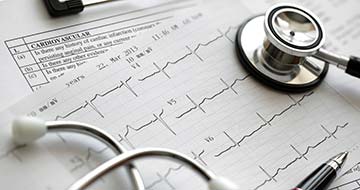Services
The first step in your care process is to understand the nature of your disease so that we can diagnose your condition.
Cardiac Electrophysiology, is the study of the electrical activities of the heart, specifically for the purposes of diag...
When our patients present with problems that may be cardiovascular in nature, we help determine the most likely diagnosi...
We help our patients improve blood flow in their arteries and veins by using very small tubes and specialized tools to d...
When the heart is functioning normally, the arteries are clear and open to allow for easy passage of blood through and o...
The highly trained surgeons and specialists at Biltmore diagnose and treat structural heart disease. We understand the n...
What is Congestive Heart Failure?
About Congestive Heart Failure
Congestive heart failure (CHF) is a chronic condition that limits your heart’s capacity to pump enough blood to deliver the oxygen and blood that your body needs. Simply put, this condition makes it harder for your heart to perform its tasks.Although sometimes referred to as simply “heart failure,” CHF is specifically the stage wherein fluids build up around the heart. This stage is what makes it harder for your heart to pump efficiently. Eventually, the heart tries to deliver enough blood and oxygen to the body by pumping faster, developing muscle mass and enlarging its size.
The body also tries to make up for heart failure by narrowing the blood vessels to keep the blood pressure up, as well as by diverting blood away from the brain, the heart and other organs and tissues like your kidneys.
Causes of Congestive Heart Failure
Some medical conditions cause wear and tear to the heart that may also lead to congestive heart failure. These conditions include:- Coronary artery disease
- Diabetes
- Heart muscle disease
- High blood pressure
- Obesity
- Previous heart attack
- Severe lung disease
- Sleep apnea
- Valvular heart disease
Symptoms of Congestive Heart Failure
The most common symptoms you may notice in the early stages of CHF include:- Fatigue
- Increased urination, especially at night
- Swelling in the ankles, feet and legs
- Weight gain
- Cough
- Irregular heartbeat
- Shortness of breath
- Wheezing
- Bluish skin
- Chest pain
- Fainting
- Rapid breathing
Diagnosing Congestive Heart Failure
Based on your symptoms, your cardiologist or a heart specialist may perform a physical exam to help detect irregular heartbeat. To examine your blood vessels, chambers and heart valves, your doctor may also recommend the following tests:- Blood tests
- Cardiac catheterization
- Echocardiogram
- Electrocardiogram (EGC or EKG)
- MRI
- Stress test
Treatment Options for Congestive Heart Failure
CHF cannot be cured, but your doctor may recommend treatment options that can help you manage your symptoms, prevent your condition from getting worse and help improve the quality of your life. Managing CHF usually involves:- Lifestyle changes
- Reducing sodium intake
- Regular exercise
- Taking diuretics (to reduce fluid in the body)
- Taking medications
- Surgeries (i.e. heart transplant)
Final Thoughts
As mentioned, congestive heart failure can be life-threatening. If you’re seeing signs of this condition, please immediately schedule an appointment with your cardiologist for the early management of your symptoms and to prevent CHF from getting worse.Thanks for reading! Stay healthy!
Sources:
American Heart Association
Centers for Disease Control and Prevention
Healthline







